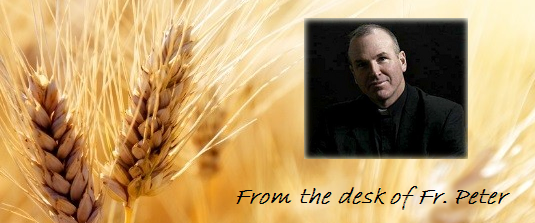Peace to you!
The great prophet Elijah was filled with the Spirit of God and yet, in his humanness, he was discouraged to the point of death. We hear in the first reading how God encouraged him by sending an angel to speak to him and give him nourishment. The nourishment that Elijah received was more than just physical; it was spiritual too and it gave him the strength he needed to fulfill his mission. Because Elijah listened and received gratefully what God gave him, he was strengthened to accomplish God’s will.
There are times in our lives when the burdens and crosses of daily life seem to get too heavy for us. We can be discouraged like Elijah and simply want to give up. There are times when we don’t understand and we murmur, question, and doubt like the Jews in the Gospel story. Sometimes we grieve the Holy Spirit by allowing our bitterness and frustrations to move us to lash out at others with anger, harsh words, fury and shouting. The readings today call us back away from sadness and confusion. Instead, they direct us to receive strength through his Word, the Eucharist, and the life of the Holy Spirit within in us. Jesus, who is the Living Word of God, came also as Bread from Heaven so as to nourish us to life in communion of his own Spirit. The image of God feeding the people of Israel in the desert with manna during their forty-year sojourn to the Promised Land prefigures the fulfillment of the true Bread from Heaven sent in Jesus. Jesus comes to us with Words of encouragement and clear instructions, he gives us himself under the form of bread and wine to strengthen us. We are uplifted as the wind of the Spirit fills our hearts and souls to run joyfully as members of the Heavenly Kingdom. Our hope is made certain as we fix our desire on the true Promised Land of eternal happiness with God in heaven. The invitation that Jesus gives is to all! Our mission as God’s prophetic people is to invite and encourage others to come with us on this great sojourn in which we find and share blessing and peace! God bless you always! +++ Fr. Peter

